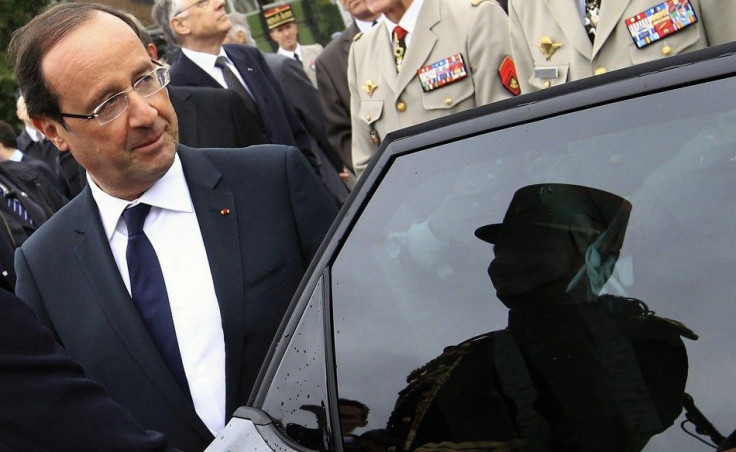Armed With Victory, Francois Hollande Seeks To Scale Back Austerity In France

Francois Hollande received a powerful mandate from the French public after his Socialist Party and its allies gained control of the National Assembly in parliamentary elections on Sunday.
In the final tally, the Socialists and their cohorts now control about 315 seats in the 577-seat Assembly -- marking the first time in 30 years that Socialists have enjoyed such dominance in the French government.
The Socialists, who already control the Senate, will now seek to enact reforms to scale back the austerity measures of Hollande’s predecessor, Nicolas Sarkozy, and focus on economic growth through government spending and higher taxes.
It is a difficult situation we are in, said Prime Minister Jean-Marc Ayrault. But from now on, we will be able to mobilize all our vital powers to make our country even stronger.
The large vote also means that Hollande will not have to cooperate with extreme leftists (Greens, Communists, etc.), who opposed parts of his economic agenda.
This [result] exemplifies strong confidence in the president, said Finance Minister Pierre Moscovici.
With a new, solid, large majority we can pass laws for change, Foreign Minister Laurent Fabius similarly gushed. It gives us great responsibilities both in France and in Europe.
Christian Fraser, a BBC correspondent in Paris, described Hollande’s triumph as “the Socialists' biggest result in modern French history, and it underlines yet again that across Europe people are turning against austerity.”
Hollande, armed with a powerful mandate from his countrymen, is now on his way to Mexico to attend a G-20 summit, where he will surely have some interesting chats with pro-austerity champion, Chancellor Angels Merkel of Germany.
Among other measures, Hollande plans on hiring 60,000 public sector workers, hiking the income taxes on people who earn in excess of €1million ($1.27 million) per year and lowering the retirement age.
According to Reuters, the Socialists will meet in a special session next week in Parliament to eliminate tax breaks for large corporations, particularly banks and energy firms.
“We need to sort out this country's finances, to ensure we achieve a balanced budget by 2017, and at the same time pursue our priorities in terms of growth, employment, education and security, said Interior Minister Manuel Valls.
“We need to mobilize our European partners, because piling more austerity on top of austerity will lead to tragedy and a deep rift between the peoples of Europe and their politicians.
However, Hollande will eventually have to make some spending cuts somewhere given that public debt is nearing 90 percent of GDP.
Meanwhile, Sarkozy’s conservative Union for a Popular Movement, or UMP, Party saw its representation in the Assembly plunge to 214 seats from 304. The party now has no fixed leader.
Turnout in the election was at a record low -- only 55.9 percent -- suggesting that many of the beleaguered French public, beset by high unemployment -- almost 10 percent, a 13-year high -- have lost faith in the political system.
Separately, the extreme right-wing National Front party is believed to have won two seats in the Assembly, for the first time since 1986, although party leader Marine Le Pen herself lost her chance for a seat in the northern constituency of Henin-Beaumont.
Nonetheless, Le Pen said the results were an enormous success for her party.
© Copyright IBTimes 2025. All rights reserved.





















